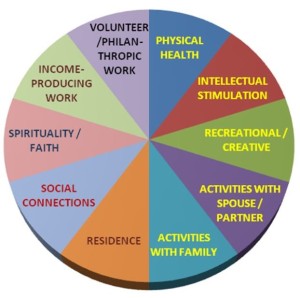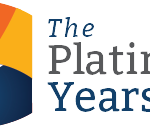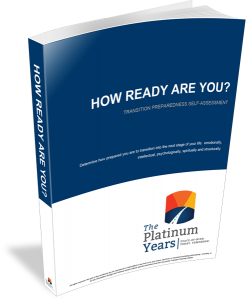Is Retirement a Big, Fat Lie?
 Today, most people in the world can expect to live 60-70 years; in highly developed countries about 70 to 80 years, and in a few rich countries, more than 80 years. But, for most of human history, human beings have had a life expectancy from birth of only 30 to 40 years. It wasn’t until the mid-20th century that human life expectancy moved to 50 to 60 years.
Today, most people in the world can expect to live 60-70 years; in highly developed countries about 70 to 80 years, and in a few rich countries, more than 80 years. But, for most of human history, human beings have had a life expectancy from birth of only 30 to 40 years. It wasn’t until the mid-20th century that human life expectancy moved to 50 to 60 years.
So, the concept of Retirement is a relatively new phenomenon. In my work, I talk to a lot of people over age 50. Some people say “Yes, retirement is a lie because I haven’t saved enough for retirement, so I guess I’ll work forever”. Others tell me “No. I’ve saved money for many years for my retirement – of course I’m going to retire”.
If we’re going to live until our 70s, 80s or more, what are we living for? What are we saving all this money for anyway? What are we working towards?
Three Retirement Stories
Jane worked in retail for a number of years after the kids were grown. She liked to get out of the house, make a little money and socialize with co-workers. When her husband retired after 40 years with “the phone company”, he started to nag her to quit working so they could travel, and so she quit. They did a little travel and had some fun with the grand-kids, until her husband got cancer. Four years later he was dead. A little while after his death, I asked how she was doing. Her reply startled me, “I wish I had never quit that job and now I am too old to go back. This Retirement is for the Birds”.
I recently worked with a client I’ll call Sue, who had been working since she was 19 years old; work was important to her. Sue was now 60 and had just retired from a small college. Sue was busy for a while helping with wedding plans for her youngest child, and volunteering one day a week. Her husband was 70, a part-time consultant and college instructor. Sue told me, “he gets up each day with a plan, and goes out the door. I get up in the morning with a few things to do, the next thing I know it’s 3PM and I think – I didn’t do much today”.
In 2003, we bought a second home on Cape Cod. The previous owner also used it as a second home. On a visit prior to the closing, I met Fred, a man in his 70s who was the father of the previous owner. After he retired from a career as an engineer, Fred moved to Cape Cod (which if you don’t know has become kind of like Disneyland for the age 60+ crowd) and he became the caretaker of his son’s second home. He talked with great pride of the work he did to maintain the home, the flowers, the lawn and so on. He then looked at me and said, “When you’re retired, every day is like Sunday afternoon; this place has kept me busy. After you buy this place, I guess I’ll be losing my job”. Ouch – not what I was expecting to hear.
So what’s happening here?
If you watch advertisements from financial firms, you see retired people who all seem so happy, traveling, taking care of grand-kids, learning new languages, golfing, etc. – it all looks so great. But how do real people spend their time? If you look at data from the US Department of Labor, you’ll find that people age 45+ who a work full time spend their days like this: about 8 hours working, 7 hours sleeping, and 9 hours for everything else. People who are retired spend about 8 hours sleeping, 6 hours of watching TV/movies and 10 hours for everything else. I don’t know about you, but replacing work with 6 hours of TV/movies does not sound very fulfilling.
Merrill Lynch sponsored a study in 2014 and described four stages of retirement:
- Pre-retirement (about 5 years thinking and planning to leave full-time work)
- Career intermission (2.5 years of travel and fun – sort of a very long vacation)
- Re-engagement (9 years working part or even full-time, lots of volunteering and caring for family
- Leisure (5 or more years not working because of physiological decline, lack of interest in paid work and/or a desire to simplify their life)
I believe Retirement isn’t just a lie, it’s a whopper of a lie.
You see, retirement has become the nice word to replace what is happening to us: we age, we decline and we die (I call this the other ADD). Because of the introduction of the first pensions (Germany is often touted as having originated them in the 1880s), people were promised an income from the state so they could stop working. The ugly truth is that most people died before they ever collected a pension (about age 50). So in a sense, Retirement was a lie at its roots.
You can’t avoid aging, declining and dying (as far as I know), so I say it’s time to replace “retiring” with “purposeful living”. It’s a time to reflect on your values. It’s a time to dig into the person you are today and ask if that is the person you wish to be in the future? So instead of thinking “when am I going to retire?”, ask yourself, “How am I going to get the most out of the rest of my life?
To do that, I suggest you try something similar to this chart I call a Framework for Purposeful Living™:
 ©2008-2016 Successful Transition Planning Institute, LLC
©2008-2016 Successful Transition Planning Institute, LLC
This chart has ten aspects of life, integrated to help you replace the sense of purpose most of us get from full time work.
Physical Health – Since most of us are going to live into our 70s and 80s, we’d be wise to get continual exercise to keep ourselves as healthy as we can, for as long as we can. Maybe join a club to make it social, if you can to keep you motivated.
Intellectual Stimulation – Most of us get a lot of intellectual stimulation from work, if we cut back or quit working entirely, we need to replace that time with learning (endless crossword puzzles and Sudoku are not going to cut it.) Try some classes at colleges or clubs, and if that doesn’t work for you, online learning is at your fingertips today.
Recreational/Creative – Most people gravitate to golfing, gardening, or hiking and the like. They’re all fine, but what about stretching yourself to try art, music, dance, writing or poetry? Exercise both sides of your brain.
Activities with Spouse/Partner – many of us in the age group have a spouse or partner often for 20 or more years. If you want to stay together, you need to find mutually enjoyable activities to keep that connection. If not, you may join the growing wave of “Gray Divorce” – the age 50+ crowd whose divorce rates have doubled in the past 25 years.
Activities with Family – while this may seem obvious, since many families are moving farther away from each other, you’ll need to find activities to keep that connection. It need not be a grand vacation, sometimes simple dinners can suffice.
Residence – Many people in this time of life consider downsizing, others look to build a “dream house”. You need to decide how you want to live -what is important to you to be happy, so you can live in a place that fits your life, not conflicts with it. For example, if you like kayaking, then living in the desert might not work so well.
Social Connections – many of us find a lot of our social connections through work. If you leave full time work (the office if you will), you will slowly lose many of those connections. Facebook is nice, but it can’t replace sitting with a friend over morning coffee, or drinks after work. You’ll need to find new places to meet people who share your interests.
Spirituality or Faith – This time of life is often when people deepen or reconnect to a faith tradition, while others seek to gain a sense of spirituality without religious dogma. This is often hard for people, because it requires deep introspection. It’s fair to say that spirituality is what separates us from all the other critters on earth, so to ignore it is to cheat yourself out of one of life’s great experiences.
Work, both Income Producing and Volunteer – I see these as two sides of the same coin because there is a different kind of intrinsic value to getting paid for work than the intrinsic value you get from volunteering. At this stage of life, paid work is often part-time, consulting, or even a small business. What people tell me is that they seek flexibility – no more grindstones! Volunteering may seem obvious, but what I ask you to think about is seeking causes that honor your values (beyond the value of a check you can write). If you find a cause does not honor your values, then you need to back off or even back out. You still only have 24 hours in a day after all.
Collectively, these ten aspects can keep you not just busy, but make you feel integrated with the person you want to be at this stage of your life.
So, you can replace the dream (or big fat lie) of Retirement with a fulfilling, purposeful life, but only if you’re willing to do the heavy lifting of thinking robustly about your future. I promise you this, if you do, you will get to live a life you have consciously designed, perhaps for the very first time. And I thought that was an idea worth sharing.
If you think it’s time to think seriously about your life and your future, click the link below to download the free “How Ready Are You? Assessment™.



